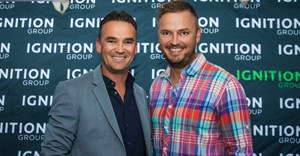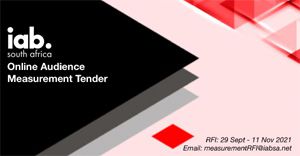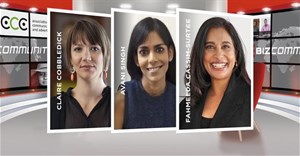
Subscribe & Follow
Jobs
- Head of Digital Johannesburg
- Social Media Specialist Johannesburg
- Digital Brand and Marketing Manager Cape Town
- Digital Projects Administrator Pretoria
- Mid-level SEO Specialist Cape Town
- Digital AI Intern Cape Town
- Paid Media Specialist Cape Town
- Video Editor Cape Town
- Content Creation Lead Cape Town
- Copywriter Cape Town
The internet has changed our brains: Has your company stayed the same?
A recent study dubbed 'The Bi-literate Brain' proved that screen-reading has changed the way we read. Because we spend 8 hours or more a day staring at a screen, we are less comfortable reading in the linear fashion we used to, preferring to dart around and skip between sections of information. Our brain acts differently now when reading a book than when reading on a screen. It's true for reading, and it's true for shopping... which is important, because for the first time in history, companies have to cater for two shoppers in one. Your online self, and your offline self. Each self behaves in a unique fashion.
You may, for example, be a dawdler when you visit the grocery store, taking the time to touch and deliberate over each item before putting it in your shopping basket... yet take the opposite approach when online shopping, using the search function to pile up the necessary goods and rushing to checkout within ten minutes.

It's a unique challenge that has to be met with a unique marketing strategy. Simply duplicating your offline effort online simply doesn't work because not only is your audience less captive, you are competing with a cacophony of distractions (including ALL of your competitors).
I've heard the argument made that "our audience is old school and offline, and we will keep catering to them" - but that demographic is not only shrinking, but the hold "old school companies" have is precarious. The lure of the internet is simply too powerful to ignore. Once we understand how a web audience operates, we can start adapting our strategies to rope them in - and usually it's relatively simple.
Prepare for the inevitable
Marketing managers have to prepare themselves for a new audience. Psychiatrist Nicholas Carr's studies have already showed us that the Web is increasingly affecting our behaviour - making us ruder, amongst other things, but also changing the way we think and bond with each other.
Think of all the apps that are alerting you to people who share the same interests as you do. Our circle of friends is not only increasing, but we're also becoming more 'tribal'. It's much easier to collaborate with an existing 'tribe' of followers than to create one.
Set the goal
Building a high traffic e-platform takes years (and a great deal of investment), but partnering with a site that already has the right balance of traffic and the desired buyer intent is key. Today's audience is driven by the connectedness of information, rather than digesting big chunks of information from a single source. Online magazines and newspapers are designed, for example, to follow the online pattern of jumping from one author's argument to the next, encouraging leaps deeper and deeper into different thoughts.
Unlike a bricks and mortar store, or a physical magazine and broadsheet, it doesn't matter if your audience are visiting a site to buy a specific item (e.g. a second hand fridge) as long as their intent is to buy. They are much easier to sway with an alternative and/or to upsell to.
Know how to sell, and where
Essentially when dealing with a large high-traffic e-commerce platform like a classified, there will be two types of browsers - the ones with sparse attention that are quickly considering all their alternatives or doing price comparisons (such as confirming the availability of a local garden service or checking the price of a new car), and the ones who are immersed and engaged, using the site the same way they would do with Pinterest (browsing to see what new décor items have been uploaded, or if there are any collectibles of interest available). One group might be lured to make a purchase with a large banner ad, whereas the other would prefer to view your offering among the other ads organically popping up in their feed.
Perhaps it is most apt to say that the world hasn't changed, but the way we navigate through it definitely has. A little adjustment and a lot of understanding can tap into an exciting new audience, one that others have already engaged with.
Businesses have to adjust their thinking - their customers already have.


















